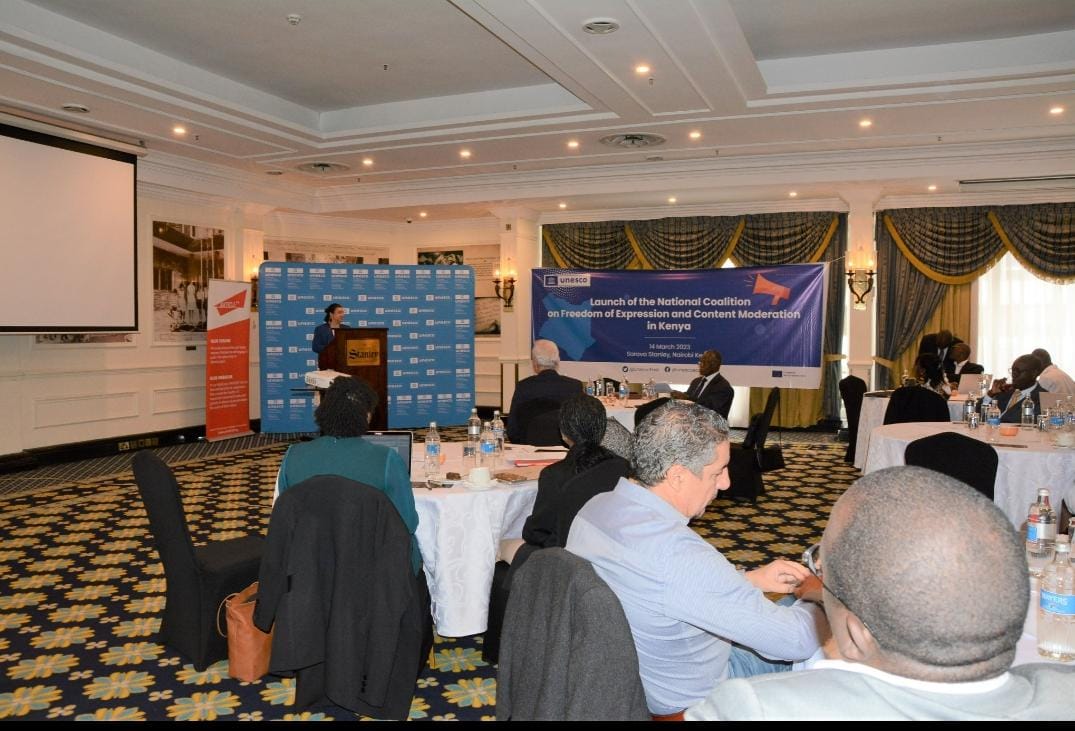Social media and other digital platforms have greatly empowered people across the globe to communicate, dispense ideas and information, transform societies, educate themselves, and entertain themselves. This has facilitated the promotion of freedom of expression and easy access to information. On the other hand, these platforms have also been misused as useful tools and incentives used to spread hate speech, propaganda, and disinformation.
On Tuesday, March 14, 2022, UNESCO launched the National Coalition on Freedom of Expression and Content Moderation in Kenya, established under UNESCO’s EU-funded pilot project ‘Social Media for Peace’. This national multi-stakeholder coalition will engage stakeholders to develop measures to address harmful online content and help bridge the gap between internet companies, regulators, and civil society organizations.
According to the research conducted under this project, social media platforms have provided an avenue for disseminating harmful online content and hate speech. This has consequently led to increased online division, political intolerance, social media toxicity, disinformation, and an array of other negative impacts on society at large.
Before the launch of this coalition, research was conducted during the implementation of the ‘Social Media for Peace’ project here in Kenya. The key issues that necessitated the formation of this amalgamation include:
An observation that there exist online hate narratives and disinformation that impair democracy, governance, and other human rights
Lack of a strong coalition to monitor and respond to online harmful content disseminated
Lack of transparency in how companies allocate moderator roles, including the number of moderators in different languages and their trusted partners or sources
Gaps in the national legislation to address issues with harmful content disseminated
Present during the launch, the Deputy Head of the EU Delegation in Kenya, Katrina Hagemann, alluded to the importance of social media business models to acquire mechanisms that portray respect and value for their users. “In keeping with the UN Guiding Principles on Business and Human Rights (UNGPs), companies have obligations to respect human rights and provide mechanisms for remedying adverse human rights impacts. This implies that social media companies ought to ensure that decisions on content moderation are made with sufficient awareness and understanding of the linguistic, cultural, social, economic, and political dimensions of the relevant local context,” she said.
This coalition is expected to develop concrete strategies that will enable the construction and maintenance of new solutions to address social media issues by maximizing the potential of digital technologies for the greater good. Most importantly, this multistakeholder national coalition on freedom of expression and content moderation in Kenya will also help bridge the gap between internet companies, regulators, and civil society organizations.
IAWRT Kenya is a global nonprofit professional organization of women working in electronic, technology, and allied media. IAWRT Kenya has over 2,000 members spread across media houses and other like-minded organizations. IAWRT strives to support the professional development of members through the exchange of ideas, experiences, and technical knowledge. It also strives to meet urgent global challenges faced by women in and around the media industry.
By Raylene Kambua, Digital Media Associate,IAWRT

